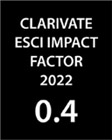Migrants’ trajectories, decisions and narrative identities
DOI:
https://doi.org/10.17649/TET.27.2.2520Keywords:
transnational migration, educational migration, migratory decisions, narrative identityAbstract
We identify the educational migration process within the theoretical framework of transnational migration. (1) Educational migration takes place in a transnational social space defined as “configurations of social practices, artefacts and symbol systems that span different geographical spaces in at least two nation states. (...)”. (2) Young Hungarian people from Vojvodina studying in Hungary can be seen as “transnational migrants” who live in two countries simultaneously and whose relations link them to two countries, albeit in different ways and intensities. (3) Educational migration cannot be seen as a one-way migration between locations. After finishing (or sometimes during) their studies some of these migrants move to and fro, and they typically remain open to further movement in the future.
The decision of whether to stay in Hungary or return to the native country is a result of a complex and long process, and any permanent (re)settlement takes place gradually. Furthermore the decisions can be related to narratives about home, belonging, ethnic, national, cultural identities and are sometimes soaked in strong emotions. Analysing the link between narratives on migration, migratory decisions and narrative identity we identified three types of narratives: the family-oriented narrative of emotional security, the ethnocentric narratives of Hungarian identity and the narrative of “nesting orientalisms”.
The narratives do not tell us too much about the outcome of migration, rather, they reflect an actual phase of a dynamic and long migratory process which began with the decision about studying in Hungary. The argumentation about, and the rationalisation, justification of staying or returning implicitly aims to interpret and represent the decision as a part of a coherent and authentic life story.
Downloads
Published
How to Cite
Issue
Section
License
Authors wishing to publish in the journal accept the terms and conditions detailed in the LICENSING TERMS.






